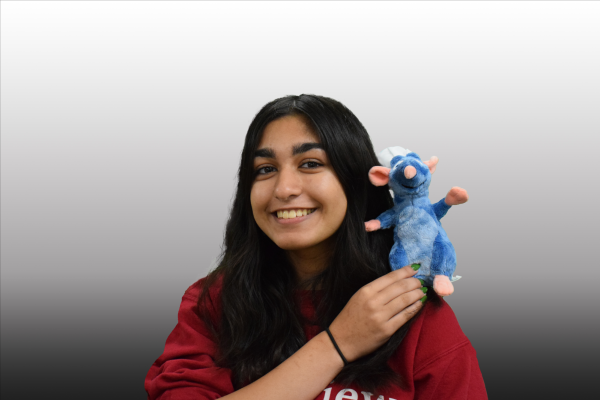Why I boycotted watching the Winter Olympics [Opinion]
Freshman Aleena Gilani talks about her decision to boycott the 2022 Winter Olympics.
February 18, 2022
For as long as I can remember, I have loved the Winter Olympics. The gold medals, the glamor and the grandeur of the wintry settings and events captivate millions of people across the globe every four years.
But this year, I did not watch the 2022 Winter Olympics in Beijing. It was not because I found Nathan Chen’s record-breaking figure skating uninteresting, or Shaun White’s final run banal.
Instead, I boycotted the games because of the inhumane treatment of the Uyghurs, an ethnic minority of the Xinjiang Uyghur Autonomous Region in the People’s Republic of China.
To fully understand and internalize the Chinese Communist Party’s controversial policies towards the Uyghur people, one must learn the full history of the conflict.
The Uyghurs, also known as “Uyghur Muslims,” first established themselves as a people in the oasis communities along the Silk Road, the ancient trade route stretching from China to Europe. The Uyghurs remained in the region, now modern-day Xinjiang, even after the territory was declared part of China.
After various Uyghur movements for independence from China in the 20th century, the Chinese Communist Party initiated “Strike Hard” campaigns in the 90s. These new policies limited Uyghur free speech and religious practice.
In July of 2009, fighting between the Chinese ethnic majority—the Han Chinese—and the Uyghurs broke out in Urumqi, the capital of Xinjiang. Hundreds, mostly Han Chinese, were killed, leading to the detainment of thousands of Uyghurs. Some were even executed.
The decades-long conflict between the Chinese Communist Party and the Uyghur people came to a head in 2016, when Chinese president Xi Jinping introduced counter-terrorism policies that included enhanced surveillance of Uyghurs and the construction of internment camps in Xinjiang.
As of now, over one million Uyghurs are detained in these “re-education camps.” Former detainees say that those trapped in the camps are put through mental and physical torture, and even sterilization. While conditions in these facilities are brutal, Uyghurs can be imprisoned for infractions as miniscule as growing a long beard, veiling, or having “too many children.”
Those who do not end up in these camps may rank among the hundreds of thousands of Uyghurs in formal Xinjiang prisons, or one of the half million in forced labor.
Regardless of any criminal accusations, all Xinjiang residents are subjected to constant surveillance, sometimes within their own homes. Beyond invasions of privacy, Muslim landmarks in Xinjiang, such as mosques and Sufi shrines, have been demolished, and names that are “too Islamic” are banned.
Some countries, including the United States, have ruled these human rights abuses genocide against the Uyghur people. The United Nations labor agency has also cited multiple concerns over the conditions of Uyghur workers, including “coercive measures” that limit their choices in employment.
But still, the crisis persists.
The international community has allowed Uyghur repression in China for over a century; ignorance and indifference on behalf of governments and companies worldwide has led to an escalation of the issue.
Despite awareness of the situation, Disney filmed a movie in Xinjiang, companies like Anta, Muji, Skechers, Uniqlo and Zara profit from Uyghur forced labor, and 91 countries sent their athletes to compete in the 2022 Winter Olympics in China.
For too long, we have ignored and even fed into the situation in Xinjiang—it’s time these human rights abuses are put to a stop.
Past movements to end the crisis have often been successful; in 2021, President Joe Biden signed into effect a ban that blocks all imports from Xinjiang tied to Uyghur forced labor. It is clear that the way to push our government and even the United Nations to take further action on the situation in Xinjiang is to use our voices, whether in-person, on paper or through a social media post.
We cannot prolong the mistreatment of the Uyghur people. As Americans, all of us have the right to free speech—let us use it to speak up for those who have been robbed of their voices.





